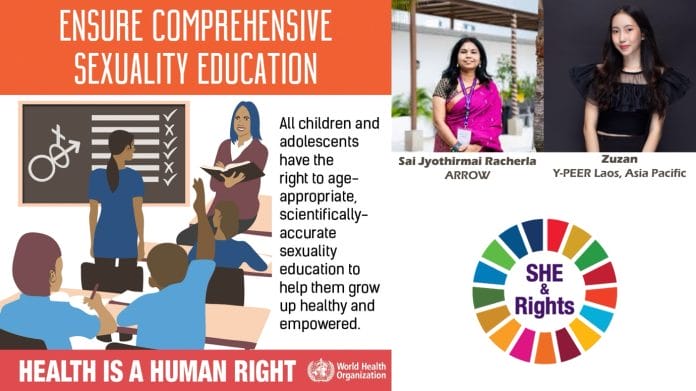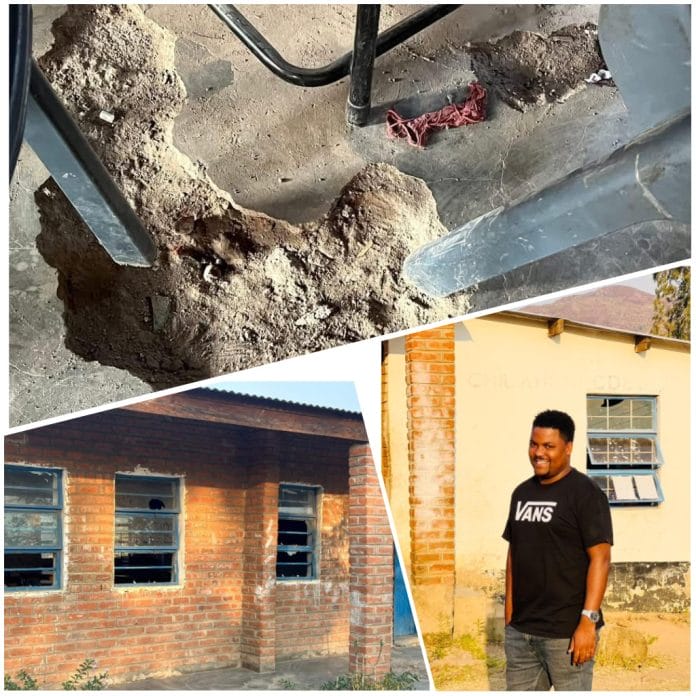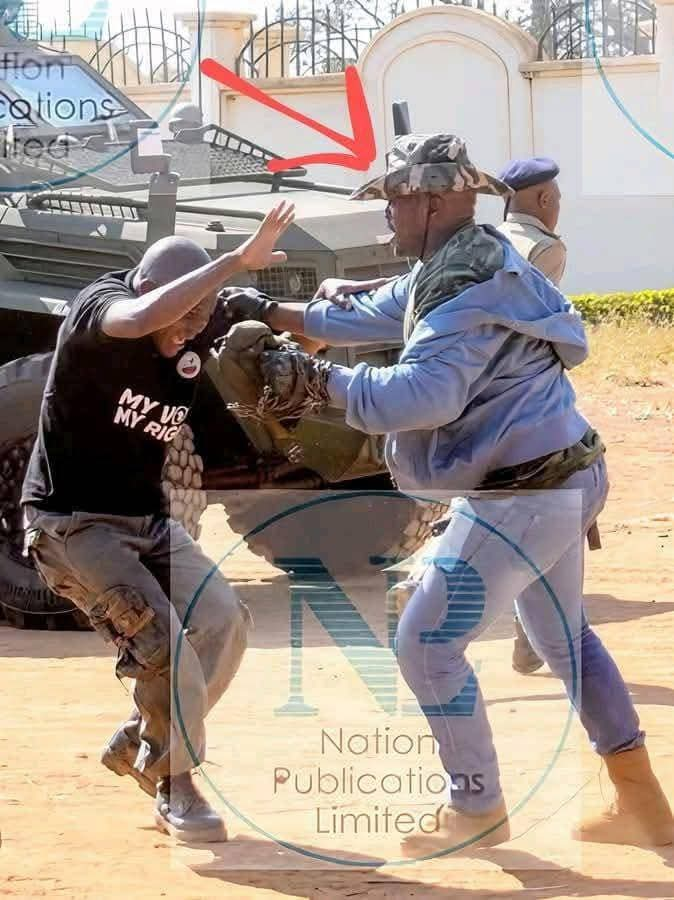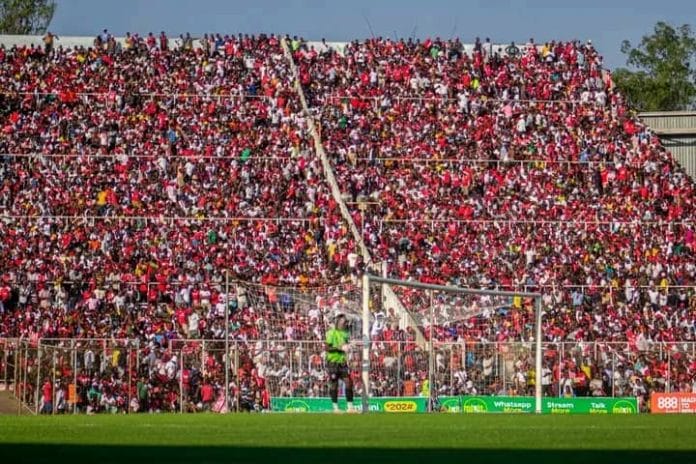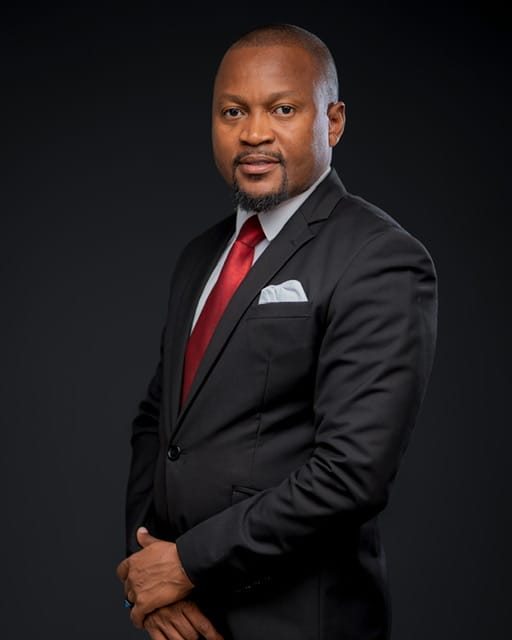
SHOBHA SHUKLA – CNS
Having taught Physics for over 30 years to young girls, when experts called for transforming teachers and teaching for young people’s health, well-being and gender equality, it resonated strongly with me.
Before world’s largest gathering on sexual and reproductive health, rights and justice (International Conference on Family Planning or ICFP 2025) opens next week in Colombia, several experts are underpinning the importance of transforming teachers and teaching for adolescent health, well-being, gender equality and human right to health.
“Every child, adolescent, and young person, regardless of who they are and where they live, deserves an opportunity to learn and develop skills that will enable them to make safe and confident choices about their lives – and comprehensive sexuality education is one such life skill,” said Sai Jyothirmai Racherla, Deputy Executive Director, The Asian-Pacific Resource & Research Centre for Women (ARROW).
Provide CSE within the education ecosystem
“Though comprehensive sexuality education is such a taboo, it is an important aspect of children, adolescents, and young people’s well-being. However, we have so many barriers in advancing comprehensive sexuality education. As SRHRJ (sexual and reproductive health, rights and justice) advocates, one of our key agenda has been to ensure that we provide access to comprehensive sexuality education within the education ecosystem,” added ARROW leader Sai.
ARROW with partners had organised an important Asia Pacific regional multistakeholder technical meeting which had put teachers and teaching centre-stage while deliberating upon comprehensive sexuality education and broader SRHRJ.
Teachers can be good enablers to provide CSE
“We see teachers as one crucial stakeholder group and this multistakeholder technical meeting had pinned down on the teachers and how teachers can be good enablers to provide comprehensive sexuality education. Global research also says that teachers are most important school-related factors affecting students’ learning. Evidence also shows that addressing learners’ health, well-being and education, improves school education, school attendance, retention and learning quality,” said Sai.
Just providing comprehensive sexuality education not only improves the life skills but also it improves the learning capabilities across other learning arenas.
Teachers and teaching and young people remained central to SRHRJ agenda of this meet organised by ARROW, UNESCO South-East Asia, UNESCO South Asia, UNICEF East Asia Pacific, UNICEF South Asia, UNFPA Asia-Pacific and Education International Asia-Pacific in collaboration with SDG for Youth Student Network and Y-PEER Asia-Pacific Centre.
Over 160 people took part including civil society, youth, academic institutions, but most important stakeholder group were government officials from the Ministry of Education of 20 countries in South Asia and Southeast Asia regions. So many ministries of education officials coming together to advance adolescent health and well-being – and comprehensive sexuality education was one crucial pivot – was in itself a big milestone, said Sai.
Gender transformative education
“This meeting also furthered the agenda of gender transformative education,” said Sai Jyothirmai Racherla of ARROW. “Whole school and gender transformative approaches should connect curricula, learning environment and well-being. A whole school approach and a gender transformative approach must be included in teachers’ training too.”
“Grassroots voices and lived experiences of teachers were highlighted from the perspective of teachers. We need to better understand what is required for teachers to provide quality comprehensive sexuality education.”
Invest in teacher training on CSE
“One of the recommendations from this meet called on investing in high quality and inclusive pre- and in-service teacher training for comprehensive sexuality education. This is very important. We are not only talking about students’ curricula, which is also very important, and that is the agenda that we are all pushing forward, but in addition to students’ curricula we are also talking about teachers’ pre- and in-service teacher training curricula which should mandatorily include comprehensive sexuality education,” said Sai.
“We also advocated for stronger education system policies and investments in teacher training so that they can promote adolescent health and well-being. We also talked about the meaningful inclusion of youth, adolescents, and teachers themselves in the development of pre-service and in-service training curricula. When the training curricula of the teachers is being developed, there needs to be consultations of the teachers themselves and there also needs to be the consultation of youth and adolescents into such curricula,” said Sai.
Teacher class action research
“One of the other recommendations that came out of this process was teacher action research. So, within the classroom practices we need to enable teacher class action research so that classroom practices and the pedagogy can be improved and it can be more resilient to meet the needs of students seeking such education,” shared Sai Jyothirmai Racherla, who would also be speaking at the upcoming ICFP 2025 next week in Bogota, Colombia.
“There was also focus on how we measured teaching and learning of comprehensive sexuality education within education systems and the data that needs to be collected at scale across the systems,” added Sai.
Are we taking care of the teachers’ well-being and health?
“Another important discussion at this technical convening was around if we are taking care of teachers’ psychosocial health and well-being because teachers’ health and well-being also impact students’ health and well-being. So, we cannot just look at a very extractive way of ‘how we need to provide comprehensive sexuality education to students’ irrespective of what is the state of the teachers. Are the teachers having the right resources? Are the teachers having the right education materials? Are the teachers in the first place having proper facilities for them to be in a well-being status for them to provide comprehensive sexuality education?” rightly said Sai.
Youth voices echo in unison for CSE
“Beijing+30 are not only reflections and past commitments, but it is a call to action for the future. From the Asia Pacific regional multistakeholder dialogue on comprehensive sexuality education, youth voice echoed clearly that we need comprehensive sexuality education that is inclusive, right spaced and adaptable to our diverse realities,” said Zuzan, Y-PEER Laos and Y-PEER Asia Pacific Centre.
“Even today, many young people still face stigma, lack of access and misinformation when it comes to sexual and reproductive health. So, without addressing these barriers, SDG-3 and SDG-5, will remain out of reach,” added Zuzan. “Teachers are not just knowledge providers but role models who can inspire values of equality, respect and empathy in the next generation. Equipping teacher with the right training mean equipping adults with a skill to think critically, to make informed choices and to treat other with respect and dignity.”
“Youth participation should go beyond consultation. Young people must be a part of designing, implementing and monitoring programmes of comprehensive sexuality education. This means establishing mechanisms for youth-led accountability such as youth advisory roles, comprehensive sexuality education monitoring committees and intergenerational dialogues that allow feedback to reach policy making. Because accountability is not only about tracking progress, but also about sharing power and trust with young people,” said Zuzan.
“Looking ahead, accountability must mean more than just tracking promises – it must mean resourcing and implementing them. That means investing in youth leaderships not only through words but through real funding and capacity building, integrating comprehensive sexuality education into national policies and curricula, ensuring no young person is left behind, especially those from marginalised communities, building stronger partnership across sectors to break silos and accelerate progress on SDG-3 and SDG-5 and creating mechanisms for youth-led accountability so that young people have a real seat at the table monitoring and evaluating progress on Beijing+30 commitments,” concluded Zuzan.
Zuzan and Sai Jyothirmai Racherla were keynote speakers at SHE & Rights (Sexual Health with Equity & Rights) session held ahead of International Conference on Family Planning or ICFP 2025 which will open next week in Bogota, Colombia. SHE & Rights session was on the theme: “It is time for accountability and action after UNGA High Level Meeting around Beijing+30.”
This SHE & Rights session was together hosted by Global Center for Health Diplomacy and Inclusion (CeHDI), International Conference on Family Planning (ICFP) 2025, Y-PEER Asia Pacific, Y-PEER Laos, Family Planning News Network (FPNN), International Planned Parenthood Federation (IPPF), Asian-Pacific Resource and Research Centre for Women (ARROW), Women’s Global Network for Reproductive Rights (WGNRR), Asia Pacific Media Alliance for Health and Development (APCAT Media) and CNS.
Shobha Shukla – CNS (Citizen News Service)
(Shobha Shukla is a feminist, health and development justice advocate, and an award-winning founding Managing Editor and Executive Director of CNS (Citizen News Service). She was also the Lead Discussant for SDG-3 at United Nations inter-governmental High Level Political Forum (HLPF 2025). She is a former senior Physics faculty of prestigious Loreto Convent College; current President of Asia Pacific Regional Media Alliance for Health, Gender and Development Justice (APCAT Media); Chairperson of Global AMR Media Alliance (GAMA received AMR One Health Emerging Leaders and Outstanding Talents Award 2024); and Host of SHE & Rights (Sexual Health with Equity & Rights). Follow her on Twitter/X @shobha1shukla or read her writings here www.bit.ly/ShobhaShukla)
Discover more from The Maravi Post
Subscribe to get the latest posts sent to your email.

